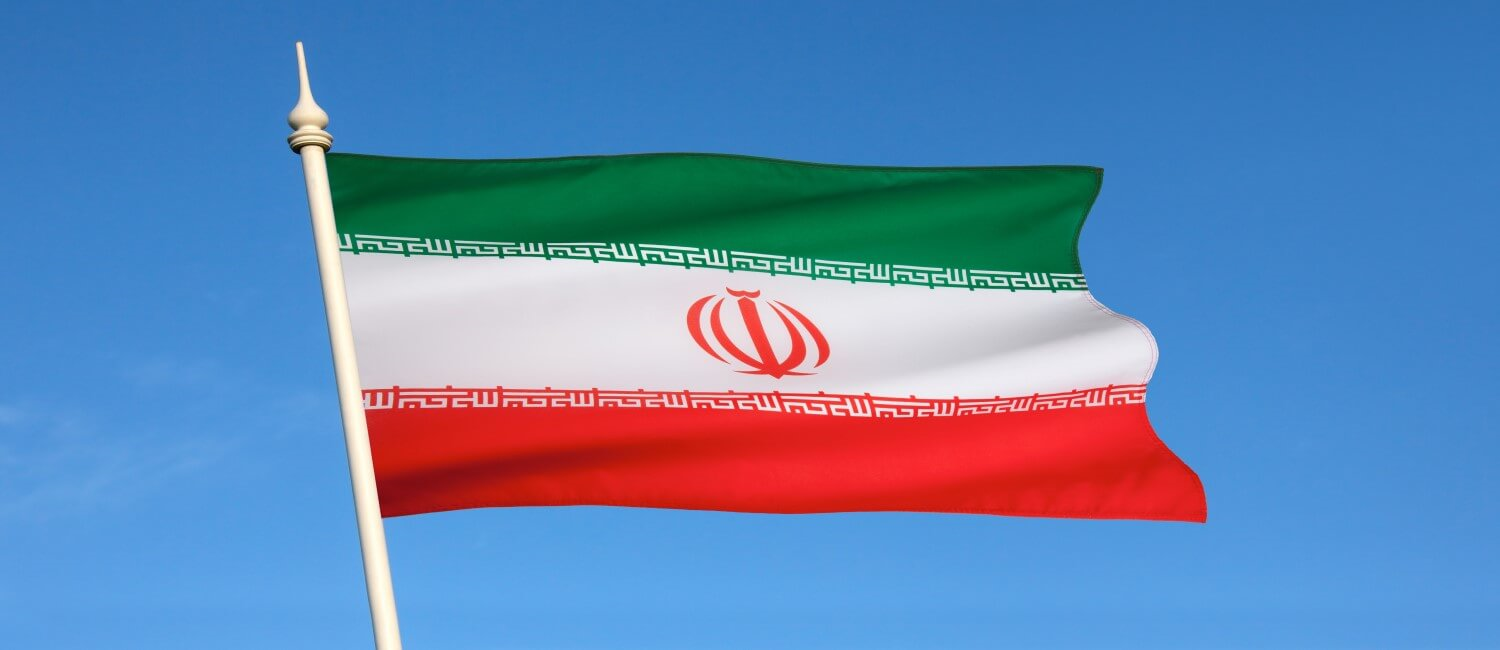Why is AML Compliance Important in Indonesia?
Because of Indonesiaʼs fast-growing financial sector, they are under increased scrutiny as AML compliance requirements become stricter. Southeast Asiaʼs largest economy is also increasing its alignment with the global financial system. Having an understanding of Indonesiaʼs AML frameworks is important for institutions within its jurisdiction.
Through his blog, you will be provided with an overview of what the current AML regulatory space in Indonesia is like, outlining specific compliance obligations for financial institutions, and, on top of that, offering you practical strategies in order to support effective implementations while maintaining efficiency in operations.
Indonesia's AML Regulatory Framework
Core Legislative Foundation
Indonesiaʼs AML framework is centered on Law No. 8 of 2010 on the Prevention and Eradication of Money Laundering, which provides money laundering offenses, assigns institutional responsibilities, and sets penalties for violations. The broader regulatory space is supported by sector-specific regulations:
- Bank Indonesia Regulation (PBI) has outlined the AML requirements for banks and payment service providers. They oversee controls for detecting and preventing money laundering as well as terrorist financing, which includes measures such as customer verification and transaction oversight.
- OJK Regulation No. 12/POJK.01/2017 has established a detailed outline on AML and Countering the Financing of Terrorism (CFT) obligations for financial institutions, such as insurers, fintech firms, and securities companies. They emphasize that risk-based compliance, suspicious transaction reporting, and having a strong internal control are important.
- Bappebti regulations have set a definition of AML standards for crypto exchanges and digital asset traders, which require platforms to utilize customer due diligence, monitor transactions, and report suspicious activities in order to reduce risks in virtual asset markets.
Regulatory Authority and Its Responsibilities
AML enforcement in Indonesia is overseen by different and multiple regulatory authorities, such as:
- Indonesian Financial Intelligence Unit: Also known as PPATK, itʼs responsibility is collecting and analyzing Suspicious Transaction Reports (STRs) and implementing AML/CFT policies. They are operating independently but also collaborating with other law enforcement and regulatory institutions.
- OJK Financial Services Authority (OJK): OJK is responsible for regulating banks, fintech platforms, and securities companies, which guarantees compliance with sector-specific AML obligations. On top of that, OJK is responsible for controlling routine audits and overall has the power over licensed financial entities.
- Bank Indonesia: BI is responsible for overseeing the payment systems and remittance providers, especially focusing on transaction monitoring, risks in the systems, and overall maintaining the integrity within the payment system.
- Bappebti: A regulatory authority that regulates cryptocurrency exchanges as well as digital asset platforms, which ensure AML regulations is applied to virtual asset service providers (VASPs).
Core AML Compliance Requirements
Customer Due Diligence and Know Your Customer Protocols
Financial Institutions are required to utilize Customer Due Diligence and Know Your Customer protocols before establishing business relationships. This includes:
- Identification Verification: Entities must check and utilize independent documents to verify individuals through government-issued ID
- Ongoing monitoring: Entities are required to apply risk-based review throughout the process of building a relationship. For higher-risk customers, increased scrutiny is needed.
- Enhanced Due Diligence: For Politically Exposed Persons (PEPs) and high-risk clients, EDD must be utilized
Suspicious Transaction Reporting
Indonesian financial institutions are required to report suspicious transactions to PPATK when there are signs of potential money laundering or terrorist financing. The key obligations are:
- Detection: Institutions are obligated to maintain systems that are capable of flagging unusual patterns, such as large or abnormal transactions, complex layering, or unusual behavior from a customerʼs typical behavior. These systems should be consistently updated in order to address risks and threats.
- Timeline of Reporting: STRs are required to submit these reports within 3 working days of identifying suspicious activity, regardless of the amount or complexity involved.
- Confidentiality: Institutions are strictly prohibited from informing customers about STR filings. Failure to do so can negatively affect investigations and can lead to severe penalties.
Threshold Transaction Reporting
Cash transactions that exceed IDR 500 million ($31,000) are required to be reported to PPATK by both financial as well as designated non-financial institutions, like real estate agents and precious metal dealers.
Record Maintenance Standards
Institutions must also store transactions and identification for at least 5 years. This ensures accessible audit trails.
- Verified customer ID documents (such as ID cards, passports)
- Detailed transaction records that mention the dates, amounts, and the parties involved
- Risk assessment reports the outline of exposure and prevention
- Staff AML training records and materials
- Written AML policies and procedures
Sector-Specific Implementation Requirements
Banking Sector Compliance
Banks are usually subject to the strictest AML obligations, such as utilizing transaction monitoring tools, customer screening systems, and undergoing frequent regulatory reviews. Some effective measurements are;
- System Integration: AML monitoring tools are required to be integrated into the core banking system in order to support real-time transaction tracking and automatic alerts.
- Risk Assessment: Customer risk assessments are required to be done regularly, considering factors such as geographical risks, transaction behaviors, and the reasons for business relationships
- Staff Training: Institutions are obligated to provide consistent training programs for their staff to help address AML compliance duties, how to recognize red flags, and internal controls protocols.
Fintech and Digital Payment Providers
Firms such as fintech and peer-to-peer (P2P) that are lending platforms are required to apply KYC processes and fraud detection frameworks. These are regulated by OJK. So, entities are obligated to:
- Verify the digital identities through the utilization of sanctioned methods
- Apply transaction monitoring measures specifically for their operations
- Establish a system for managing customer complaints and resolving their problems
- Submit regular AML compliance reports to OJK
Cryptocurrency Exchange Requirements
VASPS that are operating in Indonesia are required to register with Bappebti and comply with AML and Counter-Terrorism financing (CTF) obligations targeted for digital asset transactions.
Wallet Address Screening: Cryptocurrency exchanges are required to do a screening of wallet addresses against global sanction lists and known illicit activities.
Transaction Monitoring: VASPs are required to employ an automated monitoring system in order to identify suspicious activity in the cryptocurrency system, which includes:
- Detecting structuring techniques
- Monitoring for the use of mixing services or privacy coins
- Identifying unusual or several transactions
Customer Verification: Enhanced Know Your Customer (KYC) protocols are required specifically for users who are usually involved in a high number of transactions. Exchanges must be:
- Verify identity and address information
- Assess the source of funds for large or unusual deposits
- Conduct enhanced due diligence (EDD) for high-risk profiles
Indonesia's International Compliance Alignment
Indonesia has been consistently continuing to make its AML/CFT framework advanced in line with the Financial Action Task Force FATF and its recommendations, with the Asia/Pacific Group on Money Laundering (APG) oversight.
Mutual Evaluation Preparation:
Now, the country is currently preparing for a comprehensive FATF mutual evaluation, in which the effectiveness of its AML is assessed across key areas such as enforcement, supervision, and financial intelligence.
Regulatory Harmonization:
Recent reforms have further developed Indonesiaʼs alignment with global standards, which include:
- Beneficial ownership transparency obligations
- Correspondent banking due diligence requirements
- Updates to customer due diligence across financial as well as non-financial sectors.
Enforcement Enhancement:
In 2020, Indonesia was officially removed from the FATF grey list and the EUʼs list of high-risk third countries, which is followed by improved enforcement, such as:
- Enhanced cross-border cooperation
- Greater investigative authority for financial regulators
- Increased penalties for non-compliance
Technology Solutions for AML Compliance
Effective AML compliance in todayʼs age requires advanced technology solutions that are capable of handling transaction volumes meticulously.
- Transaction Monitoring: Systems are strictly required to examine all transactions through the utilization of risk-based rules to detect suspicious activity.
- Risk Scoring: Automated tools that are able to evaluate customer profiles depending on their risk factors.
- Sanctions Screening: Strict screening against global sanction lists, PEPs, and negative media exposure.
- Case Management: Implemented strict measurements in order to investigate alerts or updates, track decisions, and maintain clear audit records.
Sanction Scanner offers Indonesian financial institutions an end-to-end AML tools that include PEO and sanctions screenings, STR-ready case management, customer risk scoring that also uses localized filters, as well as transaction monitoring aligned with Bank Indonesia and OJK regulations.
Major Money Laundering Cases in Indonesia
| Year | Case Name / Individual | Amount Involved | Sector / Modus Operandi | Outcome / Legal Action |
| 2023 | Rafael Alun Trisambodo Case | IDR 500+ billion (est.) |
A tax official with unexplained wealth or source of funds was suspected of laundering through shell firms, as well as family assets |
Investigated by KPK and PPATK. Hence, assets were seized. This is a part of the prompt for early AML reform |
| 2022 | Binomo & Quotex Investment Scams | IDR 1+ trillion | A Ponzi scheme that uses influencer marketing and illegal crypto-style trading | Operators were arrested. There were massive STR filings and shutdowns on unlicensed platforms |
| 2020 | Jiwasraya Insurance Scandal | IDR 17 trillion (USD 1.1B) | Misappropriation of insurance funds through layered mutual funds and third-party accounts | Key executives were convicted. So, multi-agency AML investigations happened. |
| 2019 | Garuda Indonesia Bribery Scandal | USD 3.6 million | Bribes laundered through luxury goods, real estate, and foreign accounts | Former CEO sentenced to prison. This case is a part of the Indonesia-UK cooperation case |
| 2018 | E-KTP (Electronic ID) Scandal | IDR 2.3 trillion | Kickbacks laundered through fake gains and overseas shell entities | Multiple high-level convictions, including ministers |
| 2016 | First Travel Religious Scam | IDR 848 billion | Umrah travel scheme where customer funds are laundered through luxury assets | The founders were imprisoned. However, the recovery process is still ongoing. |
| 2010 | Gayus Tambunan Tax Scandal | IDR 74 billion | Money laundering by a mid-level tax officer using multiple bank accounts and fake identities | Convicted of corruption and ML; prompted early AML reform |
| 2007 | BLBI Bailout Abuse (Legacy Case) | USD 13+ billion | Fraudulent bank bailout scheme post-Asian Financial Crisis; funds routed abroad. | Several convictions, but large amounts remain unrecovered |
FAQ's Blog Post
Indonesia enforces anti-money laundering through Law No. 8 of 2010, which outlines preventive measures, reporting obligations, and penalties for non-compliance.
PPATK (Indonesian Financial Transaction Reports and Analysis Center) is the national FIU responsible for receiving, analyzing, and forwarding suspicious transaction reports.
Indonesia is not a full FATF member but actively works with APG (Asia/Pacific Group on Money Laundering) to align its AML policies with FATF standards.
STRs are mandatory reports submitted to PPATK by financial institutions when they detect transactions that may involve money laundering or other financial crimes.
Businesses should implement KYC procedures, conduct ongoing monitoring, report STRs to PPATK, and train employees regularly on AML regulations.
Violations of AML laws in Indonesia can result in heavy fines, imprisonment, and revocation of business licenses depending on the severity of the offense.
AML regulations in Indonesia are regularly reviewed and updated to align with international standards and emerging risks, typically every few years.
Key sectors include banking, insurance, fintech, real estate, and casinos, all of which must comply with stringent AML and reporting requirements.





